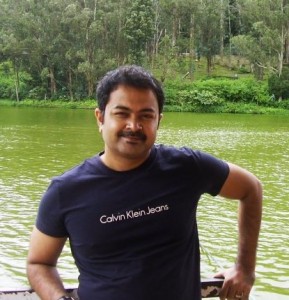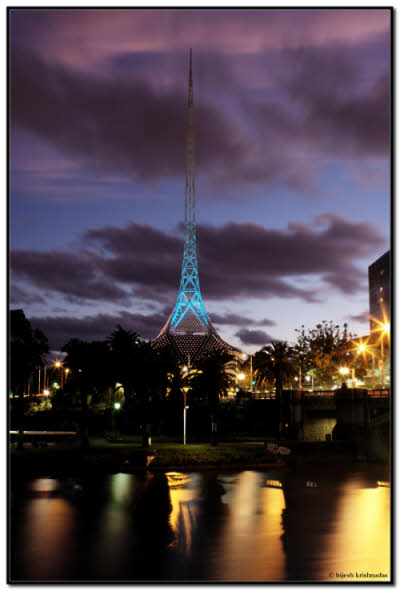by Bishwanath Ghosh
[box]What does Calcutta or Kolkata mean to Bishwanath Ghosh? The writer offers an interesting perspective on his relationship with the city. Not just that, Ghosh has something to add about the place he has lived in over the last ten years – Chennai. Chennai, he says is like his wife, and Kolkata, his mistress. More, in this special column for Spark. Bishwanath Ghosh is our Writer of the Month. [/box] [box type=”bio”]Bishwanath Ghosh is the author of bestselling travel book ‘Chai, Chai – Travels in Places Where You Stop But Never Get Off’ (Tranquebar Press, 2009). His next book, a portrait of Chennai, ‘Tamarind City: Where Modern India Began’, is due for publication later this year. Ghosh’s stories have also appeared in ‘Urban Shots’, a collection of short stories published by Grey Oak Publishers. He blogs at http://bytheganges.blogspot.com[/box]Wife is someone who you resign to. Mistress is someone you yearn for – she has things your wife doesn’t, which is why she became a mistress in the first place.
I’ve been married to Chennai for over ten years now. She’s been a traditional and dutiful wife, who looks after me well, prays in temples every morning and evening for my success, has no complaints against me except when I light up a cigarette, who wears nothing but sarees (only when she is about to get into bed does she change into a nightie that is buttoned up) and makes sure her midriff remains covered when we have guests over. When I wake up in the morning to the delectably sour smell of idlis being steamed, I find her in the kitchen, already changed into a saree, preparing coconut chutney. When I hug her from behind, she shyly pushes me away: “This is not the place. Neighbours can see.” Our immediate neighbours live some 500 metres away: they are an elderly couple, whose two sons live in America, and the daughter is married to an engineer, also living in America.
At times I do feel irritated when she pushes me away. But I let it be. After all, she has been a kind and loyal wife. She has nurtured me, and given me abundant time and space to pursue my ambitions. Whatever I am today, is because of her – I can never forget that.
But then, a man has his needs. And unlike a woman, he gives in to temptations rather easily. Just like I gave in to temptation that afternoon when I saw Calcutta come out to the balcony to spread washed clothes on the nylon wire.
Until then, Calcutta for me was the bespectacled, studious and overbearing woman who I had been running into all my life but never considered worthy of a second glance. Each time our paths crossed, we made small talk – that’s about it. But that afternoon she appeared on the balcony fresh from bath – her long lustrous hair left loose and her eyes wearing not a pair of specs but dreamy sensuality. Her saree stuck to her moist skin and as she lifted her hands to hang the washed clothes, I noticed she wasn’t even fully clothed. Even though my mouth went dry, I managed to reach my voice to her balcony: “Excuse me, can we be friends?” My question brought about a mischievous smile on her lips. She looked straight into my eyes and asked: “What took you so long?” She became my mistress.
And so, for the next three weeks, carrying a Matrix notebook I’d purchased from Chennai airport and a black matte-finish Sheaffer fountain pen that I helped myself to at a pen shop in Calcutta’s Citi Centre, I went around the roads and streets of Calcutta – Kolkata, if you like – partly on foot and partly by taxi.
It is a city like no other in India. Give a dilapidated look to the buildings of London, then suck the permissive air out of Paris and implant it over London and people it with Bengalis – Calcutta would be that city. It is a different matter that most people living in Calcutta may not realise this – most of the time they are too busy being agitated or angry.
The cause of their anger could be anything under the sun, but it’s mostly about politics, sports and work. When India lost to South Africa in the World Cup, the family friend I was watching the match with remarked angrily, “India te ektai captain chhilo, shey holo Sourav Ganguly!” – India has produced only one able captain, that was Sourav Ganguly.
I also happened to watch the final with him. Moments after Dhoni hit the decisive six and the Indian team rejoiced on the field, he remarked, rather bitterly, “Ei shob to Sourav-er ee toeri kora chhele” – These boys have been groomed by Sourav, after all.
That’s the typical Bengali man. He is, however, effectively neutralised by the Bengali woman. She can be deliberately coy or outright blunt, but she is almost always ravishing and intelligent. She loves to talk – though, unlike the man – not about things that do not have a direct bearing on her life.
She also knows how to let her eyes do the talking: hardly makes any difference whether she is English-medium or Bangla-medium, south Calcutta or north Calcutta, domestic help or the lady of the house. Oh! Calcutta!
Some images and sensations from my three-week stay shall always remain etched: the hair of Ms Mysterious sweeping across my face while I leaned to light the cigarette dangling from her lips as the taxi zipped through the wide empty road along the Maidan; hanging on to every word spoken by Sunil Gangopadhyay, the most popular writer in Bengal after Tagore, as he recalled his journey and also the time spent with Beat poet Allen Ginsberg (“He taught us that poetry is a 24-hour occupation, you cannot set aside a few hours to write it”); the taste of aam panna sold on College Street; walking up and down Park Street, as if I was in Soho; sitting 80 feet directly above the Hooghly, on the deck of a ship turned into a hotel, sipping chilled beer while being caressed by the river breeze; digging the fork into delectable kebabs at Peter Cat and Mocambo; and, above all, the voice of Kishore Kumar! Every other song played on FM channels in Kolkata happens to be either sung by Kishore Kumar or composed by R.D. Burman – listening is believing.
I am back in Chennai now; back in the arms of my wife – the familiar smell of jasmine on her hair, the familiar feel of the nightie, the familiar feel of being pushed away. But the list of irritants has suddenly increased. Chennai is the only city on this planet which does not sell canned beer – ah, the joy of having a moisture-coated can of beer sitting at your elbow while you type a story on the computer. Even in Kanpur, my hometown, you get all the standard brands of alcohol, but in Chennai – “No saar.”
Here, I cannot order a pre-meal drink in any restaurant because alcohol can be served only in hotels that have a minimum of twenty rooms (someone please explain the logic). Here, there is no street like Park Street, or for that matter an equivalent of Mumbai’s Marine Drive or Delhi’s Connaught Place, where you can hang out in your best evening wear. Here, there are no sidewalks to begin with, and taking a stroll on a road would mean squeezing your way through parked vehicles or constantly guarding yourself against the speeding ones.
Here, you begin your day by haggling with the autorickshaw driver, and pay as much as Rs 100-120 for a distance of just five kilometres. There, you flag down a taxi – not autorickshaw – and get into it in style by merely mentioning the destination to the driver, and after an interminable ride, you are poorer by only Rs 120-150 (the driver has to return the change, even if it means a couple of coins). As the day proceeds, the list of woes increases – at least for those who have lived in metros other than Chennai. For those with relatively modest incomes, Chennai has very little to offer, except the vast sands of Marina where you can buy chilli bajjis and enjoy the view of the waves. But when was the last time you went to Marina out of your own volition?
In the ten years that I have been married to Chennai, I have loved her whole-heartedly in spite of her flaws. There have been times when, irritated by her flaws, I have pretended to love her. But love has remained the common factor – after all, she is my wife.
Then Calcutta came along – the voluptuous and intellectual female who blew my mind. Adultery was inevitable. The question that now stares at me is – will Calcutta treat me with equal passion once I abandon the warmth of Chennai for good? Further, once the mistress becomes the wife, what’s the guarantee that I won’t start finding faults with her and yearn to return to the arms of the first wife?
[box type=”info”]DID YOU KNOW? The post you just read is also a part of a PDF that can be downloaded! Don’t miss the colourful edition and also the chance of reading it all in one place! To download the May 2011 issue as PDF or to flip and read it like a magazine on the e-reader, please use the buttons below.[/box] [button link=”https://sparkthemagazine.com/wp-content/uploads/2011/05/spark-may-2011.pdf” color=”red”]click here to download the May 2011 issue as a PDF[/button] [button link=”http://issuu.com/sparkeditor/docs/spark-may-2011?mode=embed&layout=http%3A%2F%2Fskin.issuu.com%2Fv%2Fcolor%2Flayout.xml&backgroundColor=000000&showFlipBtn=true” color=”green”]click here to flip and read the May 2011 issue like a magazine[/button] [facebook]share[/facebook] [retweet]tweet[/retweet]







Never knew you wrote so good. So effortless! So lucid!! You belong to the BIG LEAGUE. Hope, someday how you describe your rishta with kanpur, THE CITY BY THE GANGES. Bye, Biswanath.